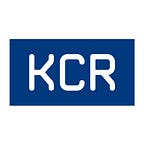How the COVID-19 pandemic triggered site contracting innovation
A Q&A with Paulina Podrecka-Gumiela, Site Contracts Manager at KCR
- What would you rate as a biggest challenge in site contracting, and how has it changed in the last few months?
Site contracting is a very early stage of collaboration with hospitals, investigators and Sponsors when the foundation for future cooperation is being developed. It is both a challenge and a real art to look for compromises, build trust and good relationships while assuring all involved parties are as comfortable as possible. What we are facing during the COVID times is unpredictability. Some hospitals, even if they have the relevant resources and medical devices to conduct clinical trials, are unaware of their future. Some of them have been temporarily closed and some are unable to commit themselves for effective patients’ selection. On the other hand, some Sponsors are presenting a cautious approach to their investment into the new projects during unstable pandemic times.
2. What kind of tools have recently been introduced within your area to support contracting processes?
The implementation of electronic signatures has made our lives easier and has had positive impacts on timelines and hospitals’ readiness for their initiation as contracted for a trial. As sustainability has become more of a priority worldwide, KCR has also decided to present a new approach and fully uses the electronic signature system. Thanks to this, we are reducing costs by avoiding courier shipments, speeding up the entire process for contract and confidentiality agreement executions. Therefore, the number of documents being separated is reduced and KCR/Sponsor/hospital employees are safe staying at home.
3. How the industry has accommodated these tools?
Whereas the clinical trial industry is used to remote work, signing documents electronically is not so common — raising questions for compliance, local customs and regulations. Plenty of hospitals and many Sponsors have found the new way of legal processing beneficial, however not all parties feel comfortable yet and are hesitant to let the wet ink process go. As an industry, we are still on the learning curve and at KCR, we aim to provide sponsors and site representatives with the necessary information to establish trust.
4. What would you see as the most needed development?
Even though we entered the 21st century some time ago, our customs and strong conviction that only paper legally matters, make us dependent on the paper industry and direct, interpersonal interactions. The most needed development is to change our mindset to be more open and agile in thinking outside the box and accommodating the new possibilities.
5. How would you see the ideal future in site contracting?
In site contracting, we are always two steps ahead while planning and mitigating possible risks. An ideal site contracting world would encourage all involved parties to follow the e-documents and e-signatures initiative. I strongly believe that our experiences during the past few months has given us a perfect lesson on the possibilities of this new operational model. We all — as CROs, sites, and Sponsors — work for the same goal: to have the most time-effective and all-sides satisfying startup of the study.
About the author: Paulina Podrecka-Gumiela manages Site Contracts Department at KCR, international clinical development provider. She leads the site contracting processes at all stages, developing adequate systems and tools for effective process execution.
